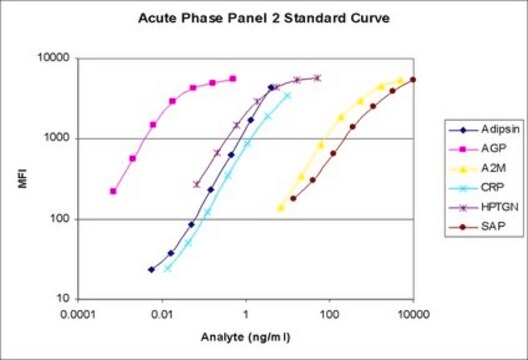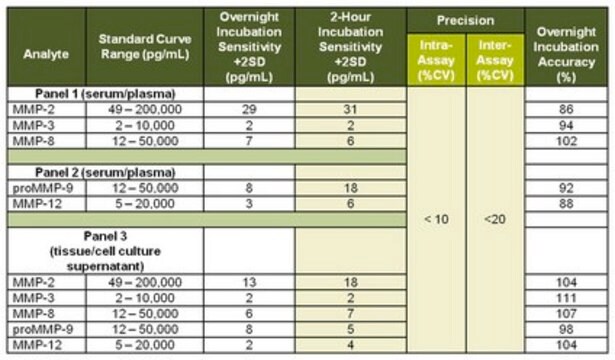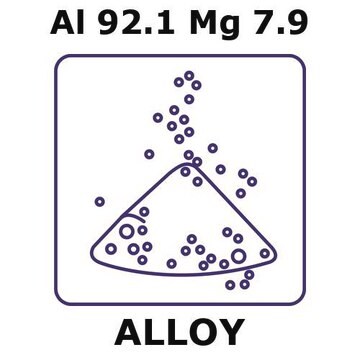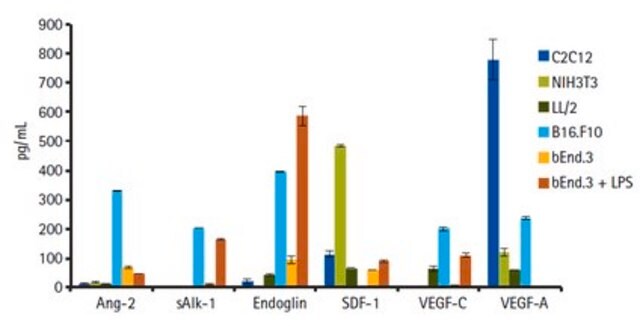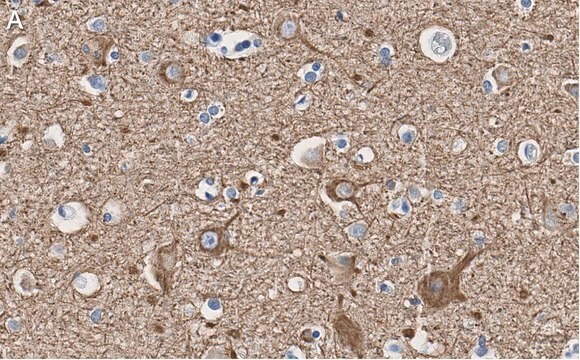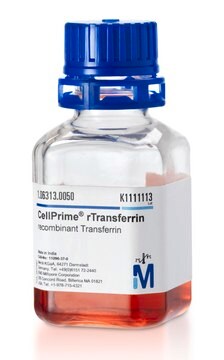CKT2MAG-97K
MILLIPLEX® Canine Kidney Toxicity Panel 2 - Toxicity Multiplex Assay
The analytes available for this multiplex kit are: Albumin, β-2-microglobulin (B2M), Trefoil Factor 3 (TFF-3), Retinol Binding Protein 4 (RBP4)
About This Item
Productos recomendados
Quality Level
species reactivity
canine
manufacturer/tradename
Milliplex®
assay range
accuracy: 96-102%
sensitivity: 0.016-0.026 ng/mL
(All other analytes; MinDC +2SD)
sensitivity: 12.48 ng/mL
(Albumin; MinDC +2SD)
standard curve range: 0.01-50 ng/mL
(RBP4)
standard curve range: 0.02-100 ng/mL
(B2M)
standard curve range: 0.02-100 ng/mL
(TFF-3)
standard curve range: 12.21-50,000 ng/mL
(Albumin)
technique(s)
multiplexing: suitable
detection method
fluorometric (Luminex xMAP)
shipped in
wet ice
Categorías relacionadas
General description
MILLIPLEX® Canine Kidney Toxicity Panel 2 is a 4-plex kit to be used for the simultaneous quantification of any combination of the following analytes in canine urine samples: Albumin*, β-2-microglobulin (B2M)*, Trefoil Factor 3 (TFF-3)*, Retinol Binding Protein 4 (RBP4)*. This kit uses a 96-well format, contains a lyophilized standard cocktail, two internal assay quality controls and can measure up to 38 samples in duplicate.
*Urinary albumin, B2M, TFF-3 and RBP4 are biomarkers listed in the Predictive Safety Testing Consortium (PSTC) project pipeline which have a strong translational role in drug safety testing.
The Luminex® xMAP® platform uses a magnetic bead immunoassay format for ideal speed and sensitivity to quantitate multiple analytes simultaneously, dramatically improving productivity while conserving valuable sample volume.
Panel Type: Toxicity
Specificity
Approximately 5% cross-reactivity may be observed between B2M beads and TFF-3 protein. No other significant cross-reactivity was observed for other analytes in this panel.
Application
- Analytes: Albumin, β-2-Microglobulin (B2M), Trefoil Factor 3 (TFF-3), Retinol Binding Protein 4 (RBP4)
- Recommended Sample Type: Canine urine
- Recommended Sample Dilution: 25 μL of 1:500 diluted canine urine for normal subjects; optimal dilutions for disease subjects should be determined
- Assay Run Time: Primary incubation of 2 hours, followed by a secondary incubation of 1 hour, both at room temperature (20-25°C)
- Research Category: Toxicology
Features and Benefits
Components
Canine Kidney Toxicity Panel 2 Control 1, 1 vial, lyophilized
Canine Kidney Toxicity Panel 2 Control 2, 1 vial, lyophilized
Assay Buffer, 2 bottles, 30 mL
Wash Buffer, 10X (0.05% Proclin), 2 bottlesl, 30 mL
Canine Kidney Toxicity Panel 2 Detection Antibodies, 1 bottle, 5.5 mL
Streptavidin-Phycoerythrin, 1 bottle, 5.5 mL
Mixing Bottle, 1 bottle
Sample Plate, 96 well format, 1 plate
2 Foil Plate Sealers
Other Notes
Legal Information
signalword
Danger
Hazard Classifications
Acute Tox. 3 Dermal - Acute Tox. 4 Inhalation - Acute Tox. 4 Oral - Aquatic Chronic 2 - Eye Dam. 1 - Skin Sens. 1 - STOT RE 2
target_organs
Respiratory Tract
Storage Class
6.1C - Combustible, acute toxic Cat.3 / toxic compounds or compounds which causing chronic effects
wgk_germany
WGK 3
Certificados de análisis (COA)
Busque Certificados de análisis (COA) introduciendo el número de lote del producto. Los números de lote se encuentran en la etiqueta del producto después de las palabras «Lot» o «Batch»
¿Ya tiene este producto?
Encuentre la documentación para los productos que ha comprado recientemente en la Biblioteca de documentos.
Contenido relacionado
Novel kidney toxicity biomarkers expand options for acute nephrotoxicity detection. Multiplex assays measure multiple renal damage biomarkers in small sample volumes, minimizing time and costs. See how MILLIPLEX® multiplex kidney toxicity assays detected vancomycin-induced subacute nephrotoxicity in rat models.
Multiplex toxicity assays enable researchers to simultaneously measure multiple toxicity biomarkers of various organs to gain a better understanding of toxicity. Explore how MILLIPLEX® multiplex toxicity assays are advancing research on liver injury, kidney toxicity, genotoxicity, and more.
Nuestro equipo de científicos tiene experiencia en todas las áreas de investigación: Ciencias de la vida, Ciencia de los materiales, Síntesis química, Cromatografía, Analítica y muchas otras.
Póngase en contacto con el Servicio técnico
